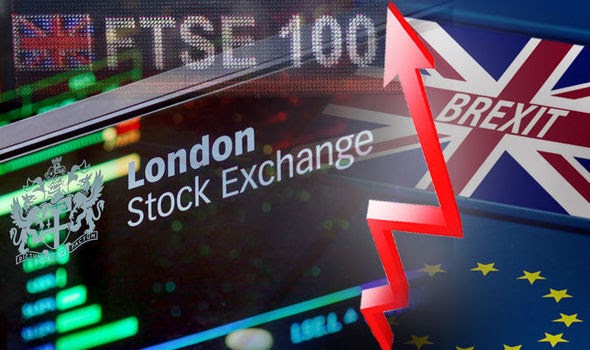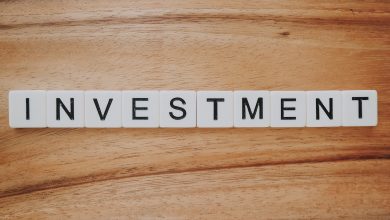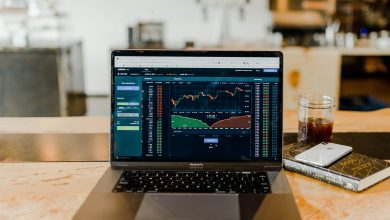UK FTSE 100 Index: All you should know

Table of contents
What is the UK FTSE 100?
Being also called as ‘UK Footsie’, it is the main index of the British Stock Exchange. The index is based on the stock quotes of the 100 largest-cap companies listed on the London Stock Exchange (LSE). FTSE stands for Financial Times Stock Exchange Group.
FTSE meaning is significant: it eflects the position of the European market, although its companies occupy 80% of the capitalization of the London Stock Exchange. FT All Share index UK is supposed to reflect the general situation in the British economy, is actually copying the dynamics of the top 100.
Facts about the FTSE 100 UK:
- The FTSE 100 Index was launched on January 3, 1984 and had an initial value of 1000 points. Since then, the composition of the index has changed almost beyond recognition: companies were absorbed, merged with each other, disappeared, which, in fact, underlines the purpose of the index – to act as a barometer of market activity.
- Even though the indicator has “100” in the name, it actually includes 101 tickers, and earlier it included 102 tickers. Why so? Royal Dutch Shell trades in two types of securities, although the number of issuers does not change because of that.
- The UK FTSE 100 index is updated every 15 seconds and is based on data from the London Stock Exchange. Other family indexes are recalculated every minute or less.
- When does the UK 100 market open? FTSE 100 trading hours are from 8:00 am to 4:30 pm UK time.
- The FTSE 100 index is in the TOP 5 important world indices. Pension funds, institutional and private investors in the UK invest in the FTSE 100 index in one way or another.
- Over the 35 years of its existence, the Britain stock market index has risen in price by 7 times, from the initial 1000 points to 7279 points as of April 1, 2019. Taking compound interest into account, growth was about 5.9% per annum, and taking into account dividends, about 9.4% per annum, which is comparable to the yield of the US market.
- The FTSE 100 index, like other world indices, is a highly liquid and fairly simple instrument for trading on the LSE (London Stock Exchange), or through CFDs, ETFs, options.
UK FTSE 100 today: what’s in the basket?
The Financial Times Stock Exchange 100 is calculated from the top 100 listed companies on the LSE. The index’s basket of shares includes enterprises belonging to the banking sector, chemical and food industries, electronics, communications, media, gas and oil production, pharmaceuticals, real estate and many others, making it widely diversified.
Some of the largest components of the Britain stock index include:
- AstraZeneca plc (LSE: AZN);
- GlaxoSmithKline plc (LSE: GSK);
- HSBC Holdings plc (LSE: HSBA);
- British American Tobacco plc (LSE: BATS);
- Diageo plc (LSE: DGE);
- BP plc (LSE: BP);
- Rio Tinto plc (LSE: RIO);
- Reckitt Benkiser Group plc (LSE: RB);
- Royal Dutch Shell plc (LSE: RDSA, RDSB);
- Unilever PLC (LSE: ULVR).
The UK equities index basket is well diversified, there is no strong emphasis on one of the sectors of the economy. The most significant sectors of the index basket include the oil and gas industry, resource companies, heavy industry, healthcare, consumer goods, and the financial sector. They account for more than 40% of the FTSE index today’s basket.
When stocks are included in the basket, securities must meet a number of criteria:
- The number of shares in free circulation.
- Free float must be at least 25% of shares for British companies and 50 +% for foreign ones. Exceptions can be made for companies that do not fulfill this requirement now, but did it during the first year after listing on stock exchanges.
- New companies with less than 5% free float are not considered candidates for inclusion in the FTSE 100.
- The company must be listed on the London Stock Exchange, the value of the shares is denominated in British pounds, euros.
- Capitalization should be high enough.
Which factors impact the FTSE 100 price today?
To understand how ftse share price uk is formed, you should know the factors affecting it:
- Economic Events like Brexit.
- Currency prices and their fluctuations can affect the price of the UK stock market index.
- Press Releases.
- Income Statement changes in the valuation of FTSE member.
- Commodity Prices (beause about 15% of the UK stock exchange index 100 companies are commodities).
It’s crucial to apply fundamental analysis and study FTSE index charts.
FTSE stock exchange cost and dynamics
Since its launch, the FTSE UK index has grown 8 times, and today it is approaching the 8000 mark. During the history of its existence, it was largely affected by such events as:
- The emergence of the Internet in 1995.
- The terrorist attack on September 11, 2001.
- US mortgage crisis in 2008.
Brexit still affects the dynamics of the indicator, but not as much as in 2016. In March 2018, the FTSE 100 showed a strong fall for the first time since the crisis. In general, no other index in the world showed such low results in the first quarter.
At the time, all indices were plagued by rumors of a US-China trade war. Inflation was predicted for the weakening dollar. It impacted the index of UK stock exchange because all of the related companies are foreign-traded and heavily dependent on the dollar.
When the dollar weakens against the pound, it also affects the UK share index. Conversely, when the dollar rallies (as in July 2018), the Footsie climbs to the top.
But this is not the only combination of factors that the British stock market regularly drops. In February 2016, the weakening of the Chinese economy coincided with a drop in oil prices. This would have been enough for the UK stock index quotes to stay in the red zone, but then the country’s banks also announced the risk of a recession.
As you can imagine, a combination of only five conditions explains the rise and fall of the Futsy 100 throughout the history of the index.
Peculiarities of trading on FTSE 100 live chart
How to make money with the FTSE 100 index? Even a beginner can make money by investing in the Futsy 100 index, there are several ways to do this:
- Buy shares of mutual funds or ETF funds the structure of which copies the composition of the stock index. This requires less funds than compiling an identical portfolio on your own.
- If you trade on premarket, consider working with FTSE pre open prices – it can be a profitable approach when you learn how to analyze the index properly.
- Buy FTSE 100 stocks through a broker. It is not difficult: you need to open an account and collect a portfolio of shares, which would be identical in composition and structure to the index. However, buying shares of the 100 largest UK companies by capitalization will require a large initial capital
- Buy Index Futures. This is a kind of dispute between participants on the subject of how the value of the index will change in the future. Contracts are executed through cash settlement: if you win this dispute, you make a profit. Don’t forget to use an ETF UK FTSE 100 chart to build strategies.
How to Invest in CFDs and ETF with UK FTSE 100?
While it is not possible to directly invest in indices such as the FTSE 100, you can buy a stock that aims to track their performance. Consider the stocks in ETFs that track the price of an index or stocks of individual constituents. Your goal will be to make a profit if you sell the stock later. You can also receive dividends if any.
In order to invest in Great Britain stock index CFDs, develop your own strategy:
- Decide on your trading style: scalping, day trading, swing trading and position trading.
- Study Charts and Price Movement. Daily and weekly charts can help you gauge market sentiment.
- Use technical analysis and indicators to identify specific signals and trends in the market.
- Look for FTSE Trading Signals. By looking at the FTSE 100 chart, you should be able to determine if it is trending.
- Set Trade Alerts. Trade alerts allow you to set specific criteria for the price of the FTSE 100 and be notified as soon as the needed price level is reached.
- Stay tuned for news from the London Stock Exchange. Every news about it can affect the value of the stock. Keep an eye on the economic calendar to trade in line with the latest events.
Bottom Line
All in all, the UK stock market index today is a great tool for investors with different strategies. By using a FTSE futures live chart and having enough capital, traders can make a living. The potential is pretty high.




